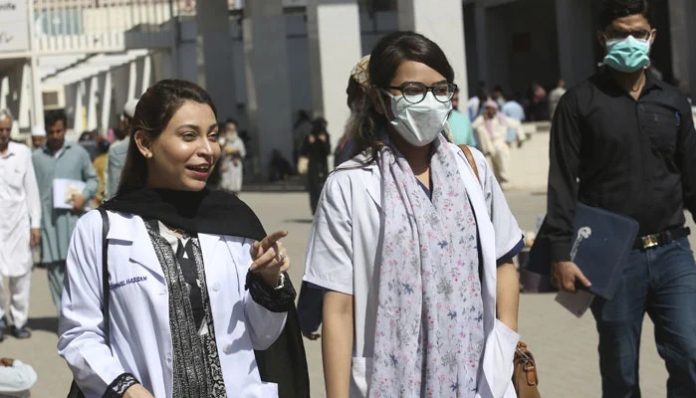DNA
ISLAMABAD: In a significant development Pakistani students will now be required to obtain a no-objection certificate (NOC) from the Pakistan Medical and Dental Council (PMDC) if they wish to undertake medical and dental studies in foreign countries.
Ministry of National Health Services, Regulations and Coordination (NHSR&C) have told the publication that the PMDC is further considering “additional checks” aimed at ensuring that Pakistani pupils receive education only at recognised educational institutions.
The PMDC’s decision on the said issue will be effective from the 2024 session meaning that no Pakistani student will be allowed to go abroad for medical education from now onwards, said an NHSR&C official.
The development comes as a large number of students have been enrolling in institutions that are not recognised by the host countries themselves.
The official further revealed that as many as 3,000 students from Pakistan, 30% of whom are women, go abroad for medical education each year with most of them travelling to China, followed by Central Asian countries such as Kyrgyzstan, Uzbekistan, and Tajikistan and Afghanistan
Pakistani students, the official added, also travel to Russia, Ukraine, Azerbaijan, Belarus, Malaysia, Turkey, Iran, and Eastern European countries like Romania for medical education
Currently, there are currently around 15,000 to 18,000 students receiving medical and dental education abroad, and although no official data is available, it is estimated that approximately $300 million are being spent annually on their education in these countries — with each family paying around $5,000 to 6,000 per year.
The health ministry official further claimed that many students enrolled in medical and dental programs abroad are attending substandard institutions that do not provide adequate clinical exposure.
Upon completion of their degrees, these students are required to do their house jobs in Pakistan rather than in the host countries. When these students return to Pakistan, they must pass the National Licensing Examination to be eligible to practice medicine or pursue specialised medical education.
Unfortunately, the majority of foreign-qualified medical and dental students fail to pass the national licensing exam, the official claimed.
He also noted that language is a significant barrier for Pakistani students, as medical education in countries like China, Russia, and Central Asian Republics is conducted in the host countries’ national languages which makes it difficult for Pakistani students to pass their exams.
Responding to a query, the official stated that there were around 21,000 students enrolled in 185 public and private medical and dental colleges in Pakistan for the academic year 2023-24, and that Pakistani medical institutions are producing more doctors than the required number of physicians and surgeons in Pakistan.
At present, our medical and dental colleges are producing a sufficient number of doctors and dentists, so there is no need to go abroad for medical and dental education, he concluded.

















